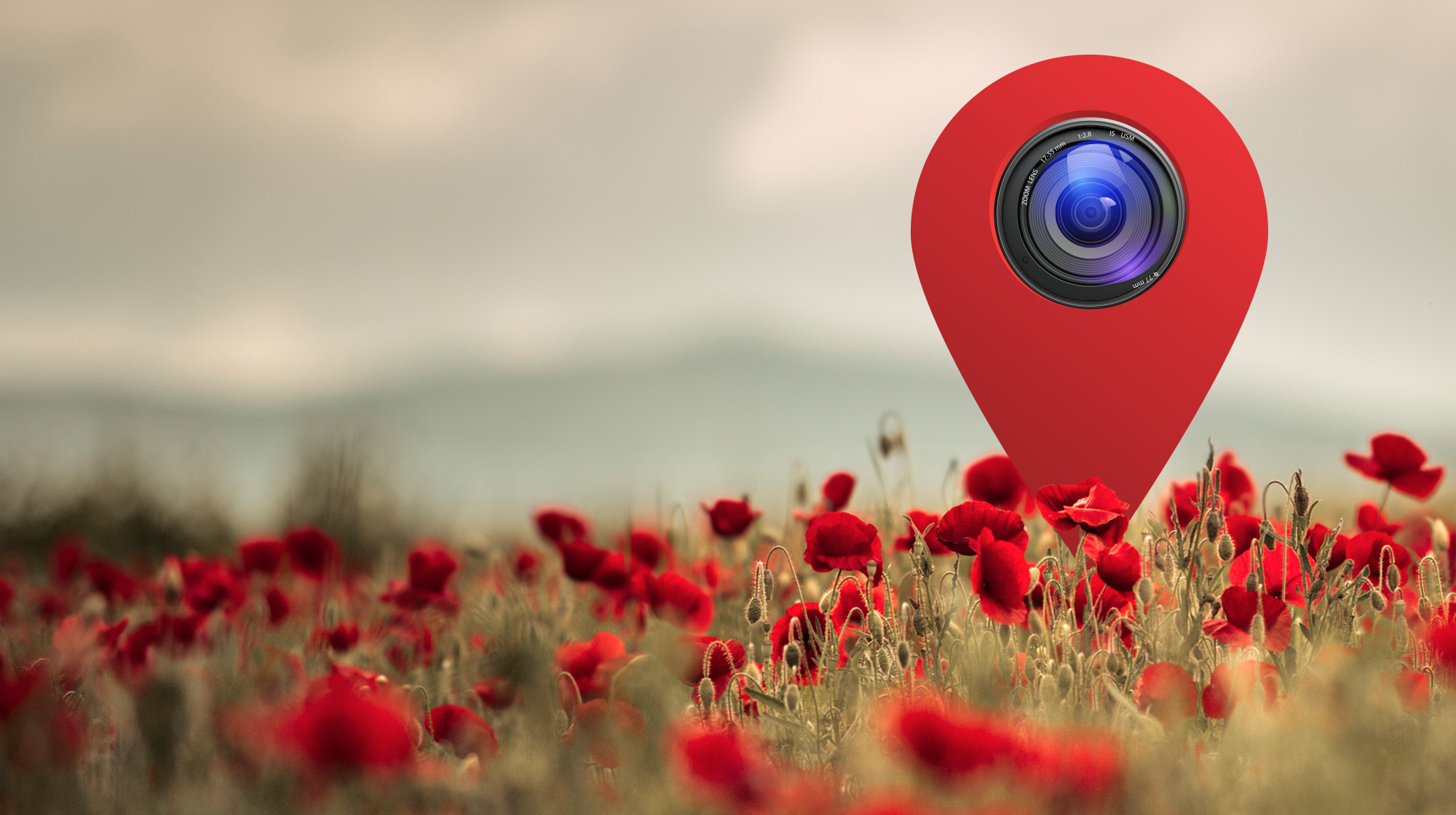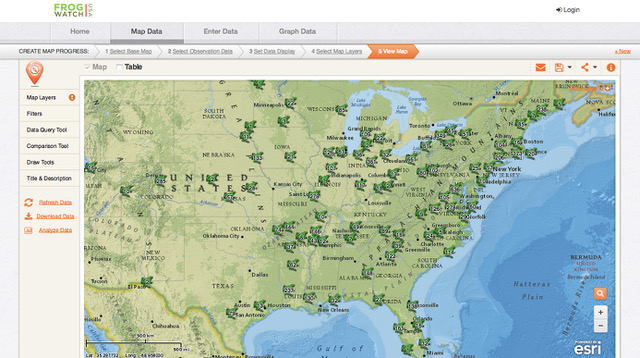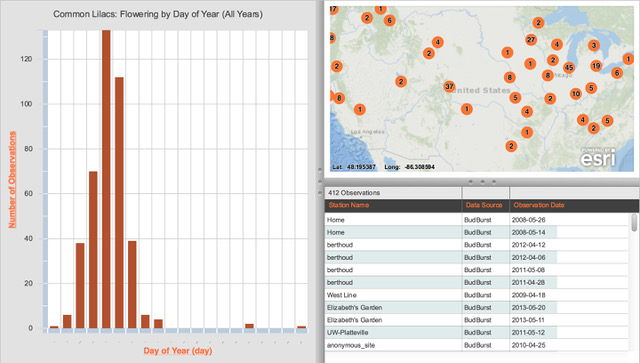Brief
Engaging Learners in Authentic Science With Environmental Data
Connected Science Learning April-June 2018 (Volume 1, Issue 6)
By Daniel C. Edelson, Audrey Mohan, and Sean O'Connor

Citizen science has long been touted as a way to engage in-school and out-of-school learners in authentic science, but the opportunities have largely been limited to collecting data. FieldScope from BSCS Science Learning is changing that by offering tools to educators and learners that they can use to conduct their own studies and analyze the data they collect.
FieldScope conducts networked field studies, which are investigations that involve the collection and analysis of data that are distributed across space and time. Many citizen science projects are networked field studies. For example, water and air quality studies and species distribution studies (in which volunteers report sightings and locations of different species) are networked field studies.
FieldScope provides all the features required to run a networked field study, as well as tools that allow students to conduct quantitative or geographic analysis of the data.
FieldScope in a nutshell
Originally developed by the National Geographic Society in 2009, FieldScope provides easy-to-use tools for participants in networked field science projects to:
- contribute georeferenced observations, measurements, and photographs to a shared database from a mobile device or computer;
- use an interactive mapping interface to explore data; and
- investigate mathematical and spatial relationships in data through graphing and geospatial analysis tools.
FieldScope’s project builder tool enables a nonprogrammer to set up a networked field study in less than an hour. FieldScope makes scientific inquiry accessible to learners as young as middle schoolers.
A look at FieldScope’s projects
FieldScope has grown steadily in popularity since 2009. From September 2016 through August 2017, FieldScope had 29,673 unique visitors. As of January 2018, more than a dozen organizations were using FieldScope to support networked field science projects. Several are specifically designed for K–12 education. The two largest FieldScope projects are:
- FrogWatch USA: Conducted by the Association of Zoos and Aquariums (AZA), FrogWatch USA is a study of frog species distribution and activity levels in which trained volunteers identify and report frog calls throughout the year. Since 2012, 31,932 FrogWatch field observations have been recorded in FieldScope at 1,451 locations. Observations have been recorded in 42 states. As of August 2017, FrogWatch had recorded more than 40,000 page views.
- The Chesapeake Watershed Water Quality Study engages schools in monitoring and analyzing water quality throughout the watershed. Since 2009, students participating in the project have recorded more than 2,125 water quality measurements at 729 locations as far north as Stroudsburg, Pennsylvania, as far west as Cumberland, Maryland, and as far south as Norfolk, Virginia. As of August 2017, the Chesapeake study had recorded more than 45,000 page views.
Other FieldScope projects include a national study of seasonal changes in plants led by the Chicago Botanical Garden (Project BudBurst), a local study of litter in the Potomac River watershed conducted by the Alice Ferguson Foundation (Trash Free Potomac), a series of BioBlitzes conducted by the National Park Service, a global study of light pollution conducted by the National Global Astronomy Observatory (GLOBE at Night), and a study of shark sightings off the coast of San Diego conducted by Ocean Sanctuaries (Sharks of San Diego). To learn more about FieldScope, visit www.fieldscope.org or email info@fieldscope.org.
Figure 2
A linked histogram, map, and table showing dates of observations of common lilacs flowering from Project Budburst.
Acknowledgments
This material is based upon work supported by the National Science Foundation under Grants No. GEO-0627923 and DRL-1010749. Any opinions, findings, and conclusions or recommendations expressed in this material are those of the authors and do not necessarily reflect the views of the National Science Foundation.
The development of FieldScope has also been supported by the National Geographic Society. BSCS Science Learning acquired FieldScope from National Geographic in 2016 with the goal of expanding its use for citizen science and inquiry-based science learning.
Daniel C. Edelson (dedelson@bscs.org) is executive director of BSCS Science Learning in Colorado Springs, Colorado. Audrey Mohan (amohan@bscs.org) is science educator and assistant director at BSCS Science Learning in Colorado Springs, Colorado. Sean O’Connor (soconnor@bscs.org) is program manager for citizen science at BSCS Science Learning in Colorado Springs, Colorado.




